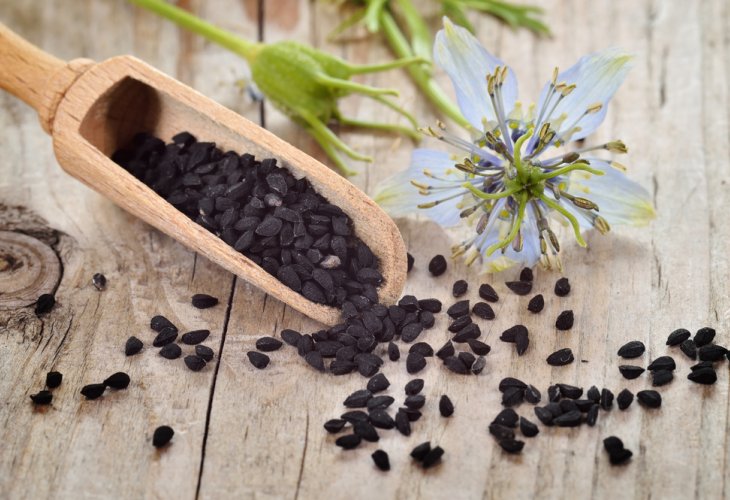Why You Should Add Nigella Seeds to Your Diet
Nigella seeds, a nutritional powerhouse, are perfect for daily meals. Try them in baked goods, salads, and dressings.
 (Photo: Shutterstock)
(Photo: Shutterstock)Nigella seeds are an ancient spice with numerous health benefits that many people aren't aware of.
They contain high levels of amino acids and minerals such as iron, potassium, calcium, and magnesium. They also have vitamins B and C.
Nigella seeds are beneficial for strengthening the pancreas and balancing blood sugar levels, making them helpful for diabetics and pre-diabetic conditions.
They support respiratory health, with anti-asthmatic and antihistamine properties, aiding in allergy relief.
Nigella seeds are known as a strong disinfectant rich in antioxidants and anti-inflammatory compounds.
They particularly aid the digestive system, alleviating bloating and stomach inflammations, as they are pain-relieving and antifungal, helping eliminate candida and other intestinal parasites.
The seeds contain "thymoquinone," a powerful antioxidant that stops the spread of cancer cells and promotes proper cell division, enhancing immunity.
High magnesium content makes them effective in balancing high blood pressure.
To absorb these nutrients, it's recommended to crush or grind the nigella seeds so that their active components become more bioavailable.
In cases of excess acidity, nigella oil is beneficial for balancing stomach acid and treating reflux.
The oil contains linoleic acid, which strengthens blood vessels, lowers cholesterol and triglycerides, and cleanses the liver.
You can make the oil easily by mixing 3 tablespoons of crushed nigella seeds with half a liter of high-quality, cold-pressed olive oil, and letting it sit in a dark place for two weeks. A teaspoon each morning can balance sugar levels and treat intestinal worms, even in children. The oil is also good for topical use on skin conditions like eczema or arthritis, and for improving blood circulation.
Nigella oil is also beneficial for applying to dry and lifeless hair.
Nigella has a potent and slightly bitter taste. For those who find it challenging to consume, there's a tahini made from 70% nigella seeds and 30% sesame seeds. The dilution with standard tahini softens nigella's natural bitterness, creating a more palatable flavor with the advantages of both seeds.
Overall, nigella is an exceptionally rich and nourishing plant. It's worth adding to your daily menu, paired with baked goods, salads, and dressings.
Zohara Sharvit is an N.D. naturopath and an iridology expert with extensive experience in treatment, consultation, and workshop facilitation. To book a free workshop, call 073-2221290

